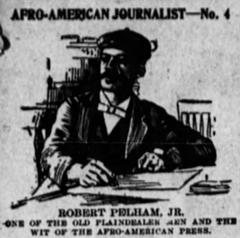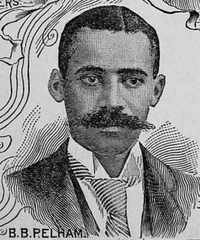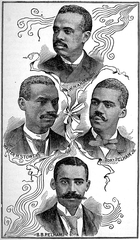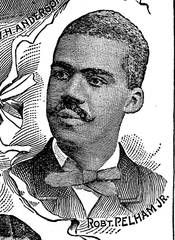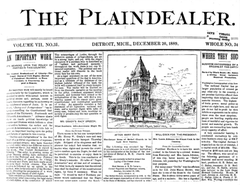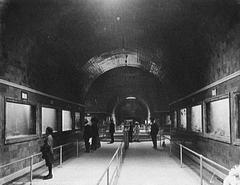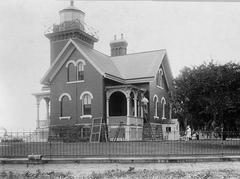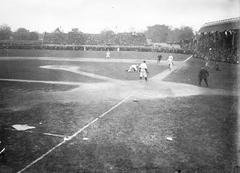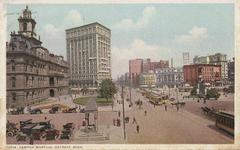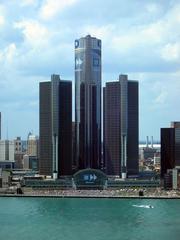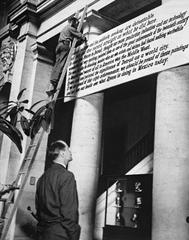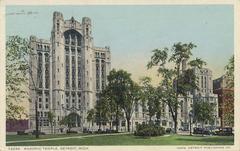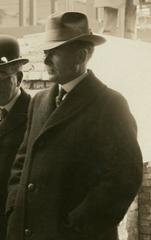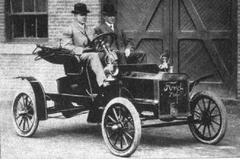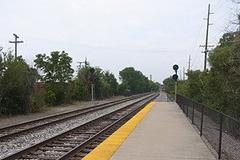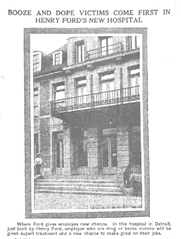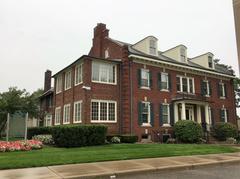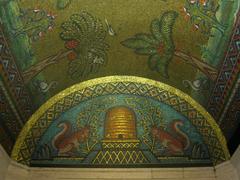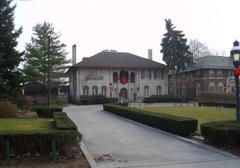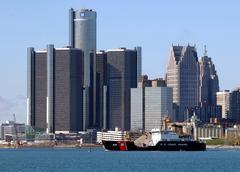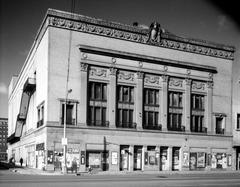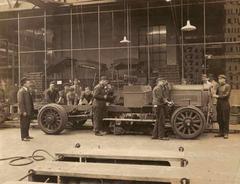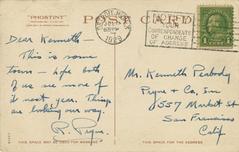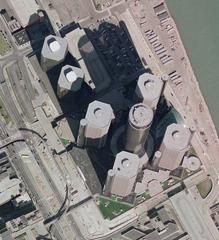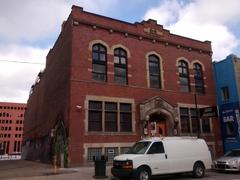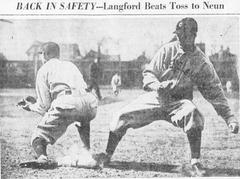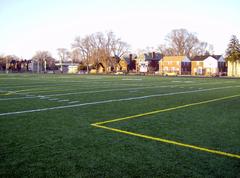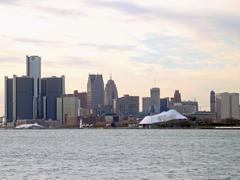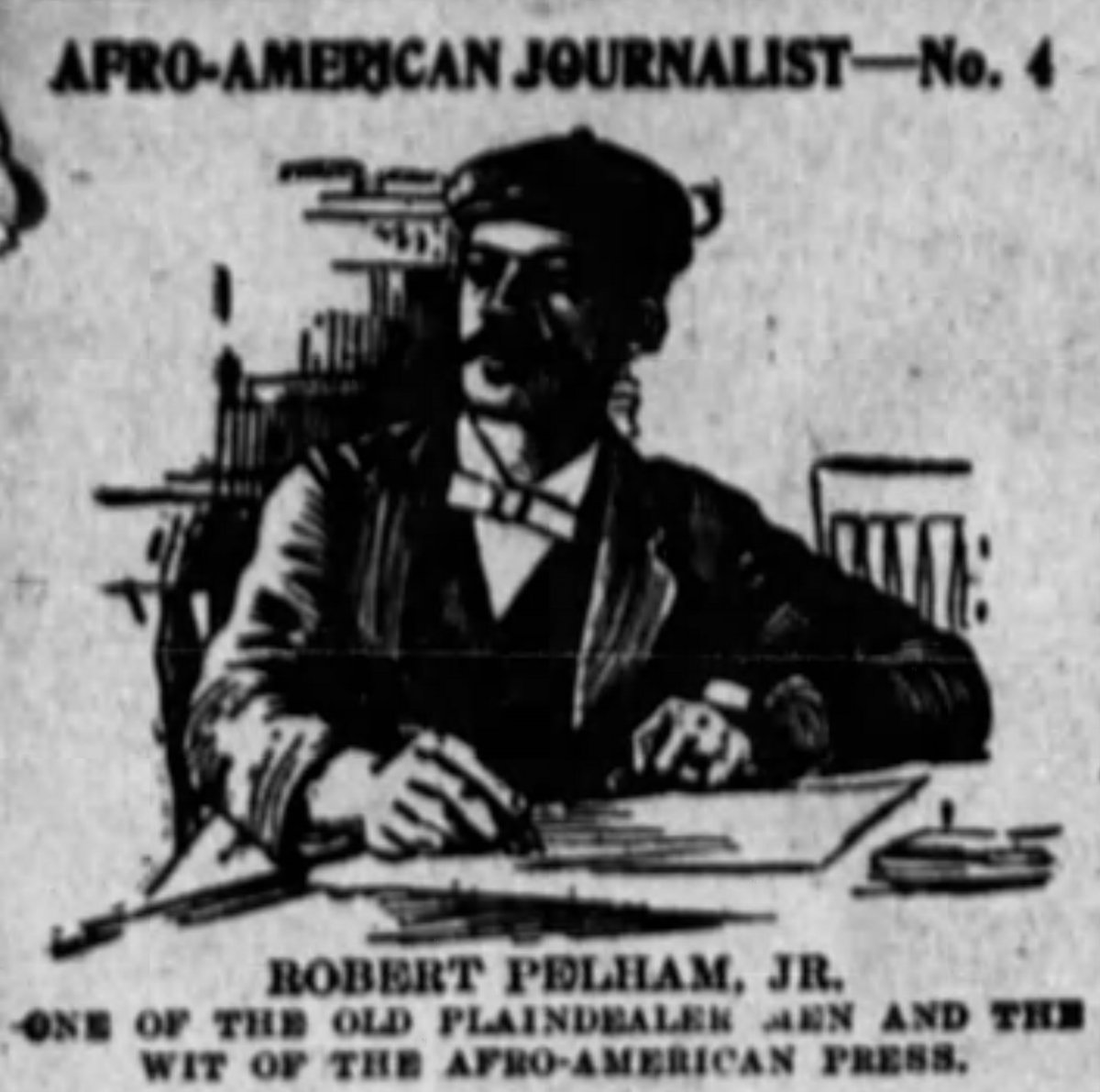
Detroit Plaindealer Site: Visiting Hours, Tickets, and Key Historical Sites in Detroit
Date: 15/06/2025
Introduction: The Detroit Plaindealer’s Historical Significance
The Detroit Plaindealer stands as a cornerstone in African American journalism and civil rights advocacy. Founded in 1883, it was Detroit’s first Black-owned newspaper and one of the earliest publications dedicated to amplifying African American voices in the Midwest. Though the newspaper itself no longer operates, its impact endures through historical sites, museums, and markers across Detroit that honor its legacy. Whether you are a history enthusiast, student, or traveler, exploring the story of the Plaindealer offers an inspiring journey into Detroit’s African American heritage and the ongoing pursuit of equality and empowerment. For up-to-date visitor information, including hours and tours, consult the Detroit Historical Society and the Charles H. Wright Museum of African American History (Detroit Historical Society, Charles H. Wright Museum, Detroit Historic District Information).
Contents
- Key Historical Sites Related to the Detroit Plaindealer
- Detroit Plaindealer Historical Site: Visiting Hours, Tickets, and Attractions
- Cultural and Social Significance
- Practical Visitor Information and Travel Tips
- Frequently Asked Questions (FAQs)
- Conclusion
- References
Key Historical Sites Related to the Detroit Plaindealer
Charles H. Wright Museum of African American History
Detroit’s premier destination for African American history, the Charles H. Wright Museum offers extensive exhibits on Black journalism and the Plaindealer’s legacy.
- Hours: Tuesday–Sunday, 10 AM–5 PM (closed Mondays)
- Admission: $10/adult, $8/seniors & students, free for children under 5 (Wright Museum Tickets)
- Accessibility: Fully wheelchair accessible
- Guided Tours: Available by request; groups should book in advance
- Exhibits: Original Plaindealer archives, interactive journalism displays, neighborhood artifacts
Alt text: Exterior view of the Charles H. Wright Museum of African American History in Detroit.
Detroit Historical Museum
The Detroit Historical Museum showcases Detroit’s diverse media landscape, including the influence of the Black press and the Detroit Plaindealer.
- Hours: Tuesday–Sunday, 9:30 AM–5 PM
- Admission: $8/adult, $6/seniors & students, free for children under 5
Burton Historical Collection at Detroit Public Library
For archival research, the Burton Historical Collection contains microfilm and digital archives of the Plaindealer and related newspapers.
- Access: By appointment only
- Location: Main Detroit Public Library (Detroit Public Library)
Walking Tours of Historic Neighborhoods
Explore Black Bottom and Paradise Valley, neighborhoods central to the Plaindealer’s history.
- Options: Guided tours via local historical societies
- Highlights: Former Black-owned businesses, churches, markers
- Tip: Wear comfortable shoes and bring water
Alt text: Tour group walking through Detroit’s historic Black Bottom neighborhood.
Detroit Plaindealer Historical Site: Visiting Hours, Tickets, and Nearby Attractions
Location and Setting
The Plaindealer marker is found in Capitol Park, downtown Detroit, near Shelby Street, Griswold Street, and State Street, in the Capitol Park Historic District (Detroit Historic District Information). The area is a vibrant public space surrounded by restored historic buildings, businesses, and residences.
Historical Context
Founded by Benjamin and Robert Pelham Jr., Walter H. Stowers, and W.H. Anderson, the Plaindealer was pivotal in championing civil rights and documenting the lives of Black Detroiters (Tell Us USA).
Visiting Hours & Admission
- Open Access: Capitol Park and the Plaindealer marker are open 24/7, year-round
- Admission: Free, no tickets required
- Best Times: Daylight hours recommended for safety and amenities
Historic Marker and Recognition
A historical marker commemorates the newspaper’s founders, mission, and impact, providing visitors with context about Detroit’s African American heritage.
Accessibility
The park features paved, level walkways and is accessible by foot, bicycle, public transit (including QLINE and People Mover), and has nearby parking options. Facilities are suitable for visitors with mobility challenges.
Cultural and Social Significance
Advocacy and Community Leadership
The Detroit Plaindealer was a vital platform for Black Detroiters, advocating for civil rights, exposing injustices, and supporting Black business and political progress (Word in Black). It united both longtime Detroit residents and Southern migrants, promoting a shared sense of identity and purpose (HuffPost).
Pioneering Black Journalism & Women’s Leadership
The newspaper employed and promoted Black women journalists like Meta E. Pelham, one of Detroit and America’s early Black female reporters, and featured the work of Ida B. Wells. Their leadership helped shape Detroit’s journalism and activism landscape.
Enduring Legacy
The Plaindealer inspired future Black-owned publications such as the Michigan Chronicle, and its legacy continues to influence journalism and civil rights advocacy (Word in Black).
Practical Visitor Information & Travel Tips
- Getting There: Accessible via car, QLINE, and People Mover (Detroit People Mover, QLINE Detroit)
- Parking: Metered and garage parking available nearby
- Dining: Local restaurants serve Detroit specialties; reservations suggested for popular venues
- Safety: Daytime visits are safest; Capitol Park is well-trafficked and secure
- Weather: Detroit winters are cold, summers warm—dress accordingly
Frequently Asked Questions (FAQs)
Q: Where is the Detroit Plaindealer site?
A: 1114 Washington Blvd., Capitol Park, downtown Detroit.
Q: Do I need tickets?
A: No, the marker and park are free and open to the public.
Q: Are guided tours available?
A: Yes, local organizations offer tours that include the site.
Q: Is the site wheelchair accessible?
A: Yes, the park and marker area are accessible.
Q: Are there restrooms?
A: Facilities are available in nearby businesses and museums.
Q: What else is nearby?
A: Charles H. Wright Museum, Detroit Historical Museum, Detroit Public Library, Detroit Riverwalk, and many restaurants.
Map and Visuals
Alt text: Detroit Plaindealer Historical Marker located on 1114 Washington Boulevard in downtown Detroit.
Alt text: Exterior view of the Charles H. Wright Museum of African American History in Detroit.
View the Detroit Plaindealer Marker on Google Maps
Conclusion: Explore Detroit’s African American Heritage
Visiting the Detroit Plaindealer site and its associated museums and neighborhoods offers a meaningful connection to Detroit’s Black history and the enduring legacy of the Black press. The Capitol Park marker, complemented by institutions like the Charles H. Wright Museum and Detroit Historical Museum, provides a comprehensive, accessible introduction to the city’s civil rights narrative. Walking tours and archival resources deepen the experience, while practical amenities ensure a comfortable visit. Enhance your journey by downloading the Audiala app for audio tours, and stay connected with local heritage organizations for event updates. The story of the Detroit Plaindealer is both a tribute to past achievements and an inspiration for ongoing progress in equality and representation (Detroit Public Library, Audiala). Plan your visit and help keep this important legacy alive for future generations.
References and Links
- Discover the Legacy of the Detroit Plaindealer: A Guide to Visiting Detroit’s African American Historical Sites, The Wright Museum
- Detroit Plaindealer Historical Site: Detroit Historic District Information
- Discovering the Detroit Plaindealer: Detroit Historical Society
- Detroit Plaindealer Historical Marker: Detroit People Mover, QLINE Detroit
- Wikipedia - Detroit Plaindealer
- HuffPost - Detroit Plaindealer African American Newspaper
- Word in Black - The Black Press Matters
- Tell Us USA - Detroit Plaindealer Historical Marker Unveiled
- Detroit Public Library - Burton Historical Collection
- Audiala - Guided Audio Tours App
